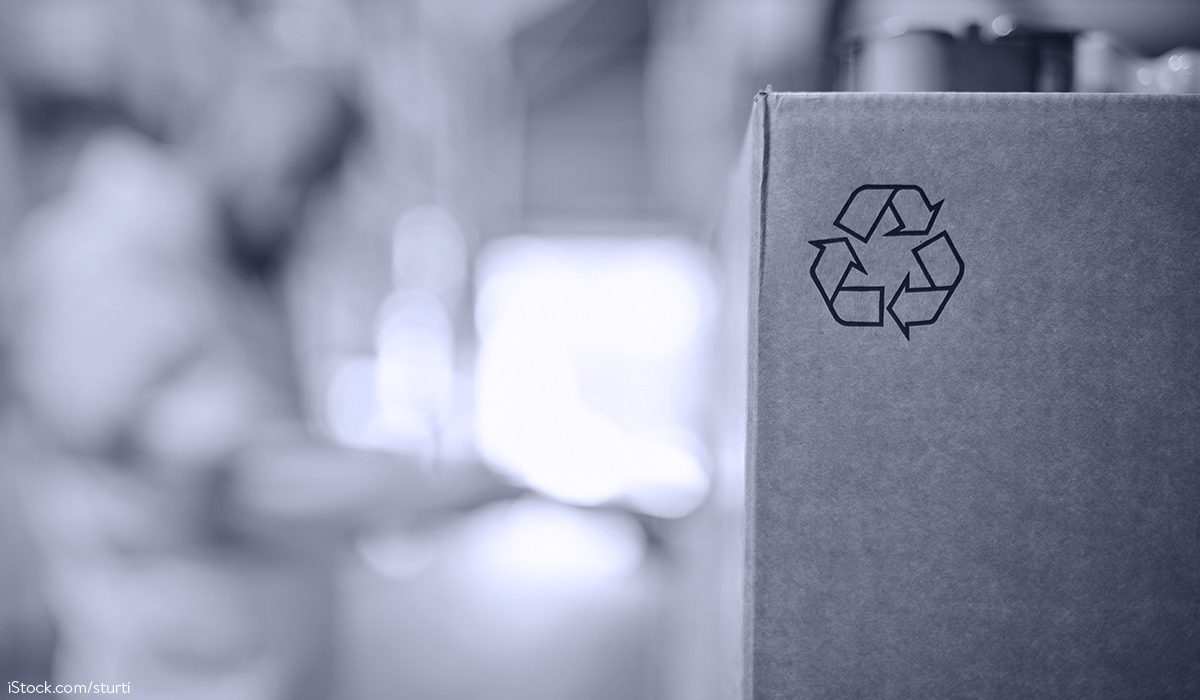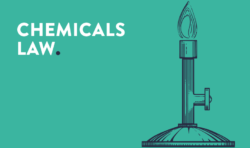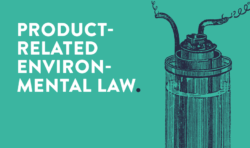The EWKVerbotsV serves to implement Art. 5 of the Directive (EU) 2019/904 on the reduction of the impact of certain plastic products on the environment. The background of this directive is on the one hand the action plan for circular economy that has been in existence for some time and on the other hand the strategy for plastics in the recycling management of the European Commission.
In terms of content, the EWKVerbotsV is a 1:1 implementation of the requirements of Directive (EU) 2019/904. Only linguistic nuances have been adjusted to clarify ambiguous wording in the German language version of Directive (EU) 2019/904 and to adapt it to the terminology used in German legislation.
Sec. 1 EWKVerbotsV clarifies that it is applicable regardless of whether the products covered by the scope are packaging or not. This rules out the possibility that packaging within the meaning of Sec. 3 para. 1 VerpackG can still be considered marketable under the VerpackG, even though it is (also) covered by the EWKVerbotsV.
Definitions
The scope and range of application is largely determined by Sec. 2 EWKVerbotsV:
- Single-use plastic product
The definition in Sec. 2 No. 1 EWKVerbotsV makes a negative distinction to reusable products. A “single-use plastic product” in this sense is “a product that is made wholly or partly from plastic and that is not conceived, designed or placed on the market to accomplish, within its life span, multiple trips or rotations by being returned to a producer for refill or re-used for the same purpose for which it was conceived”. Thus, for example, returnable plastic beverage bottles and reusable plastic tableware and cutlery for children are not covered . The distinction between single-use and reusable products depends on the objective perception of the market at the time of placing the product on the market. Accordingly, neither the manufacturer’s instructions on the possible multiple use of products nor subjective consumer habits regarding the multiple use of single-use products are relevant.
- Plastic
“Plastic” within the meaning of Sec. 2 No. 2 EWKVerbotsV is defined as a material consisting of a polymer within the meaning of Art. 3 No. 4 of Regulation (EU) No. 1907/2006 (REACH) to which additives and other substances may be added. The explanatory memorandum of the law clarifies that bio-based and biodegradable plastics are also covered; natural and chemically unmodified polymers are not covered by the regulation.
- Oxo-degradable plastic
A distinction must be made between biodegradable plastics and an oxo-degradable plastic (defined as “plastic materials that include additives which, through oxidation, lead to the fragmentation of the plastic material into micro-fragments or to chemical decomposition”) within the meaning of Sec. 2 No. 3 EWKVerbotsV, since the latter are less harmful and are therefore only covered if they are contained in single-use plastic products.
- Placing on the market
The term “placing on the market” is defined in Sec. 2 No. 4 EWKVerbotsV as “the first making available of a product on the market [in Germany]”. According to Sec. 2 No. 5 EWKVerbotsV, “making available on the market” means “any supply of a product on the market in return for payment or free of charge in the course of a commercial activity”. This definition first of all clarifies that products already placed on the market in Germany before the prohibition will come into force may continue to be sold after the EWKVerbotsV has come into force – in other words: stocks of products already placed on the market in Germany may be used up. In addition, the production of covered products in Germany remains permissible; only placing them on the market in Germany would be prohibited, which does not, however, exclude exports to another country.
Prohibition clause
The prohibition of placing on the market is divided into two parts according to Sec. 3 EWKVerbotsV: While only the single-use plastic products specifically mentioned in para. 1 such as cotton swabs (except medical devices), plastic dishes and cutlery, drinking straws (except medical devices), balloon sticks and food and drink containers made of polystyrene are covered by the prohibition, para. 2 prohibits all products made of oxo-degradable plastics without exception.
Sanctions and entry into force
Via the reference in Sec. 4 EWKVerbotsV to Sec. 69 para. 1 No. 8 KrWG, a violation of the prohibitions of the EWKVerbotsV can be sanctioned by the competent authorities with a fine of up to EUR 100,000.00 per case. In addition, confiscation is permitted under Sec. 70 KrWG.
The EWKVerbotsV comes into force on 03.07.2021. This date is made mandatory by Regulation (EU) 2019/904 in order to ensure a uniform EU-wide start date for national implementations so that there are no temporary distortions in the internal market.
Conclusion
Although dealers are not directly covered by the EWKVerbotsV, it is precisely these dealers who should endeavor to change their product range and consider alternative products at an early stage so as not to risk gaps in their product range. In particular, operators of take-away restaurants and snack bars will also have to rethink their food and beverage distribution.
In an overall view of current regulatory efforts at European and national level, the EWKVerbotsV is another measure that increases the pressure to substitute plastic products, in addition to, for example, the imminent restriction of microplastics under the REACH Regulation or the imminent ban on lightweight plastic carrier bags in the German Packaging Act (VerpackG).
Adopted version available at: Verordnung über das Verbot des Inverkehrbringens von bestimmten Einwegkunststoffprodukten und von Produkten aus oxo-abbaubarem Kunststoff (Einwegkunststoffverbotsverordnung – EWKVerbotsV)
Do you have any questions about this news, or would you like to discuss the news with the author? Please contact: Michael Öttinger






